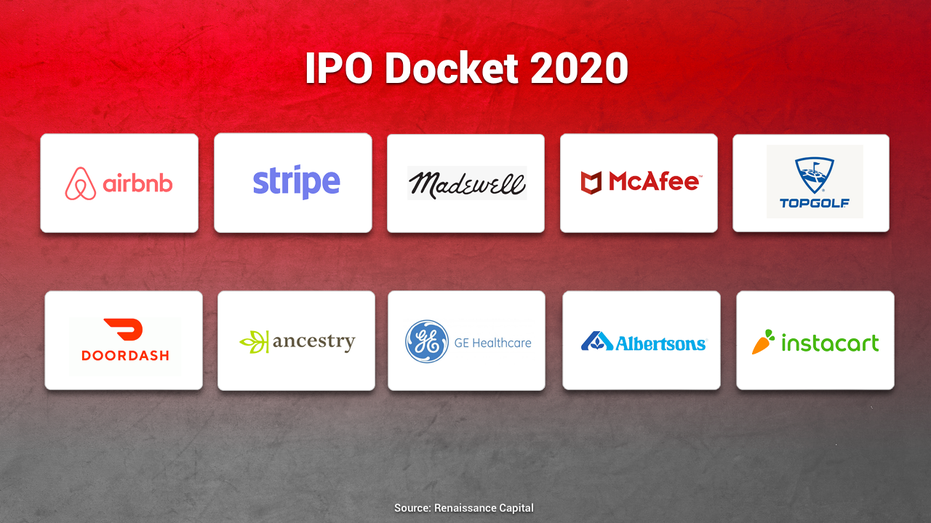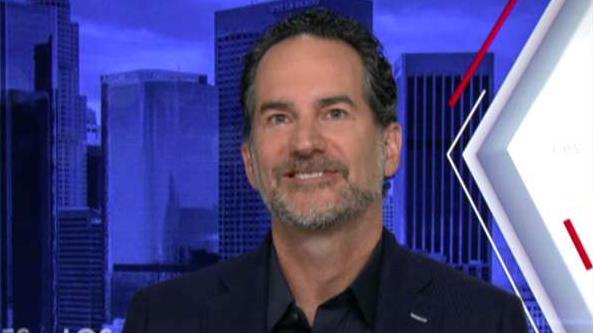Uber's bust signals rocky road ahead for IPOs in 2020
2020's class of IPOs will need to show investors the money
The U.S. market for initial public offerings may be facing another rocky year in 2020.
There have been 159 IPOs of companies with a market cap greater than $50 million in 2019, down 16.8 percent from a year ago according to Renaissance Capital, which tracks IPOs. In total, those firms have raised $46.3 billion as they entered the public market, down 1.2 percent from 2018.
“I think that the same way that WeWork couldn't go public at all, I think you're going to see a number of companies either not go public or go public at much lower valuations,” Bradley Tusk, CEO of the New York-based venture capital firm Tusk Holdings, told FOX Business. Tusk was an early investor in Uber.
US CONSUMER TURNS BLIND EYE TO IMPEACHMENT DRAMA AS CONFIDENCE HITS 7-MONTH HIGH
WeWork pulled the plug on its initial public offering in September after investors raised concerns about corporate governance and then CEO Adam Neumann's behavior. The company's valuation fell to between $10 billion and $12 billion, down from the $47 billion it received in the private market in January. Less than a month later, the Japanese investment giant SoftBank reached a deal that would raise its stake in WeWork to 80 percent, valuing the company at $8 billion.
Tusk warns that the problems WeWork experienced ahead of its IPO are going to seep into other companies’ attempts to go public next year.
“I think for some really, really big startups that have valuations worth tens of billions of dollars, it is potentially going to be a real problem because people bought into growth rounds at high valuations that they may be underwater on day one,” he said, adding that SoftBank didn’t want WeWork to go public because it would have resulted in the investment firm realizing a huge loss.
WeWork's implosion is just one slice of the troubled IPO market which is also laden with money losing companies such as Uber, Lyft and Pinterest. Those companies all saw their share prices plunge from their go-public levels. Still, the Renaissance IPO ETF, which tracks sizeable new companies for the two years after they go public, is up 33.1 percent this year compared to the S&P 500's 28.5 percent gain.
| Ticker | Security | Last | Change | Change % |
|---|---|---|---|---|
| UBER | UBER TECHNOLOGIES INC. | 74.77 | -0.44 | -0.59% |
| LYFT | LYFT INC. | 16.46 | +0.62 | +3.91% |
| PINS | PINTEREST INC. | 19.60 | +0.28 | +1.45% |
| IPO | RENAISSANCE CAP GREENWICH FUNDS IPO ETF | 44.24 | +2.60 | +6.24% |
Adam Taback, head of global alternative investments at Wells Fargo Investment Institute, agrees with Tusk and says the U.S. market is headed for “a slowdown in IPOs.”
He says because we are late cycle, it has become a “show me market” which is “much more discriminating” and “very suspicious” of investing in companies that don’t generate profits.
Taback’s paying close attention to the strategies of private equity firms to see how they’re going to get their exits. His guess is that they either hold onto the companies for longer or sell to another private equity rather than cashing out through an IPO.
“You've got all this money that went into deals that are buying in even now at high values and at some point they need an exit,” Taback said. “If you don't have IPOs as a great exit opportunity, that means those exits are going to come at a sale and that sale is likely going to come at a discount.”
That likely means tough sledding ahead for the more than 100 billion-dollar companies, or unicorns, that are waiting to go public.
“I think valuations are getting a lot more top of mind,” said Matthew Kennedy, senior IPO strategist at Renaissance Capital.
“These large companies are going to have to prove that they can become profitable, that their business model makes sense," Kennedy said. "They don't really get a blank check for their market opportunity anymore.”

He points to Airbnb and Stripe as tech unicorns that could raise more than $4 billion through IPOs next year.
Tusk isn’t sure the public markets will support Airbnb at its current valuation of $35 billion, and thinks smaller tech startups with better economics and higher margins, like cybersecurity companies “may be a better bet.”
Other, more defensive, companies expected to IPO in 2020 include the grocery-store chain Albertsons, Reynolds Consumer Products and GE Healthcare.
Taback says the IPO market isn’t dead yet and could still turnaround in 2020.
CLICK HERE TO READ MORE ON FOX BUSINESS
He thinks a phase two trade deal with China or a de-escalation of tariffs globally, and evidence the U.S. consumer is stronger and manufacturing has bottomed will instill confidence in the markets, leading to “much more IPOs.”




















